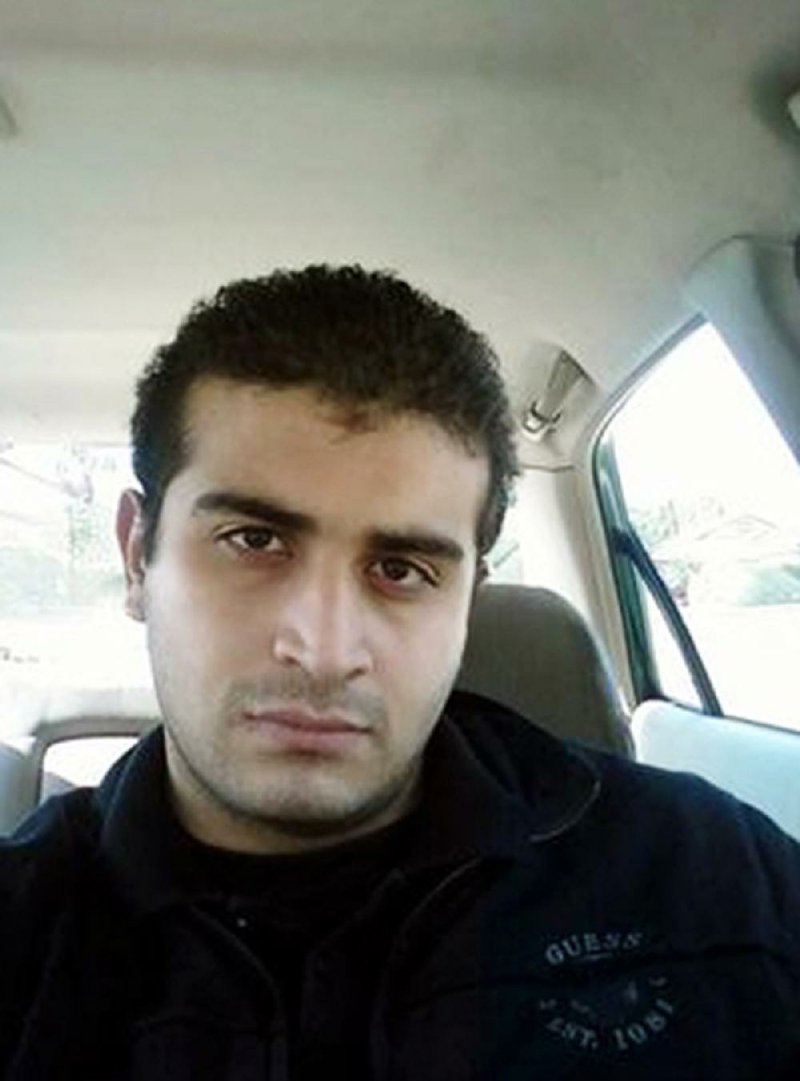ORLANDO, Fla. — The gunman responsible for the worst mass shooting in U.S. history told a police negotiator during a standoff at a Florida nightclub that the United States needed to stop its airstrikes in Syria and Iraq, according to a transcript of the phone conversation released Friday.
Omar Mateen identified himself to a 911 operator as the shooter at the Pulse nightclub in Orlando about a halfhour after the massacre started, and he pledged allegiance to the Islamic State group.
“I want to let you know I’m in Orlando and I did the shooting,” he said.
When a police negotiator called him back about a dozen minutes later, Mateen told the negotiator he needed to stop U.S. airstrikes in Syria and Iraq. A U.S.-led coalition has targeted Islamic State militants with airstrikes in those two countries.
“They are killing a lot of innocent people,” said Mateen, a New York-born son of an Afghan immigrant. “What am I to do here when my people are getting killed over there? You get what I’m saying?”
When the police negotiator asked Mateen to tell him “what’s going on right now,” Mateen mentioned the killing of the Islamic State military leader Abu Wahid, who died in a May airstrike.
“That’s what triggered it, OK?” Mateen said. “They should have not bombed and killed Abu Wahid.”
Mateen also likened himself to Boston Marathon bomber Tamerlan Tsarnaev, according to the transcripts. Three people were killed and more than 260 were injured when two bombs exploded at the marathon’s finish line in 2013.
“My homeboy Tamerlan Tsarnaev did his thing on the Boston Marathon,” Mateen said. “So, now it’s my turn, OK?”
Mateen told the negotiator that he had fasted and prayed all day, since it was the Muslim holiday, Ramadan.
He also told the police negotiator that he had planted bombs in a vehicle outside the gay nightclub. Mateen’s statement ended up being false, but police officers took the threat seriously at the time.
The police negotiator told Mateen he wanted to help him and wanted to resolve the standoff peacefully. Mateen, a security guard who had once sought to become a police officer, hung up several times, but at one point he asked the police negotiator what year he had graduated from the police academy.
The police negotiator didn’t answer him.
“Look, you’re annoying me with a lot of your phone calls,” Mateen said shortly before hanging up.
This week, the city of Orlando has made public dozens of 911 calls, as well as the transcripts of three conversations Mateen had with police negotiators, after fighting with media groups seeking their release.
The June 12 nightclub attack claimed 49 lives and seriously injured 53 others.
The media groups had argued that the release of the records would help the public evaluate the police response to the massacre. The city had said the records were exempt from the state’s public records law, both because they were part of an investigation and because some were graphic calls of patrons being shot and killed.
Earlier this month, the FBI, which is investigating the mass shooting, said that withholding the records was no longer necessary to its probe.
During a court hearing Friday, an attorney representing the city said almost two-thirds of the more than 600 emergency calls had been released and the remaining 229 calls were exempted under a Florida law that prohibits the release of records of someone being killed. The city classified as exempted all calls made from or going into the nightclub, said attorney Darryl Bloodworth.
Rachel Fugate, an attorney for the media groups, said the city’s classification was too broad.
A hearing will be scheduled on the issue at another time. Family members and survivors may be allowed to express how they feel about the calls being released, Bloodworth said.
Mateen also likened himself to Boston Marathon bomber Tamerlan Tsarnaev, according to the transcripts. Three people were killed and more than 260 were injured when two bombs exploded at the marathon’s finish line in 2013.
